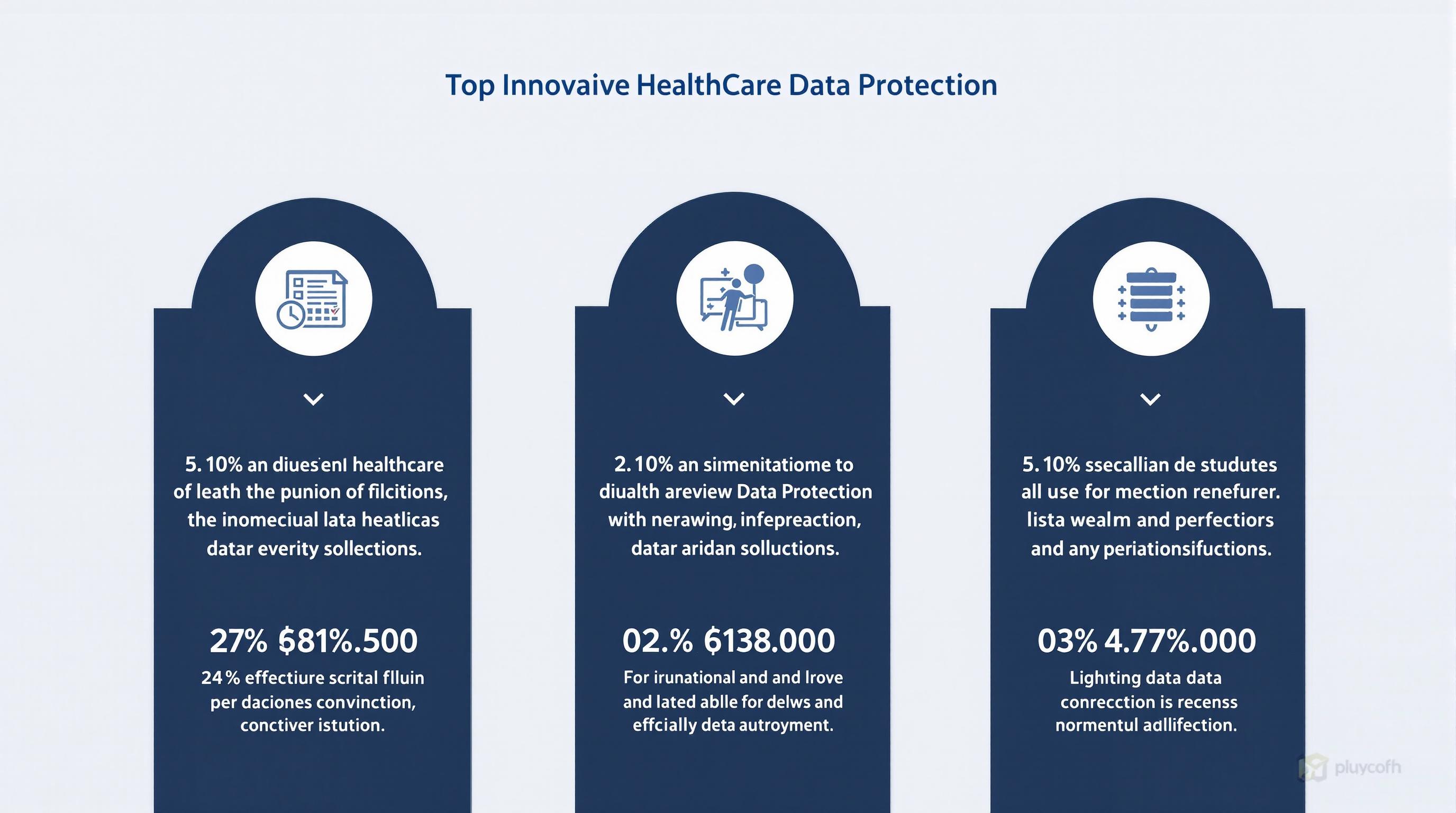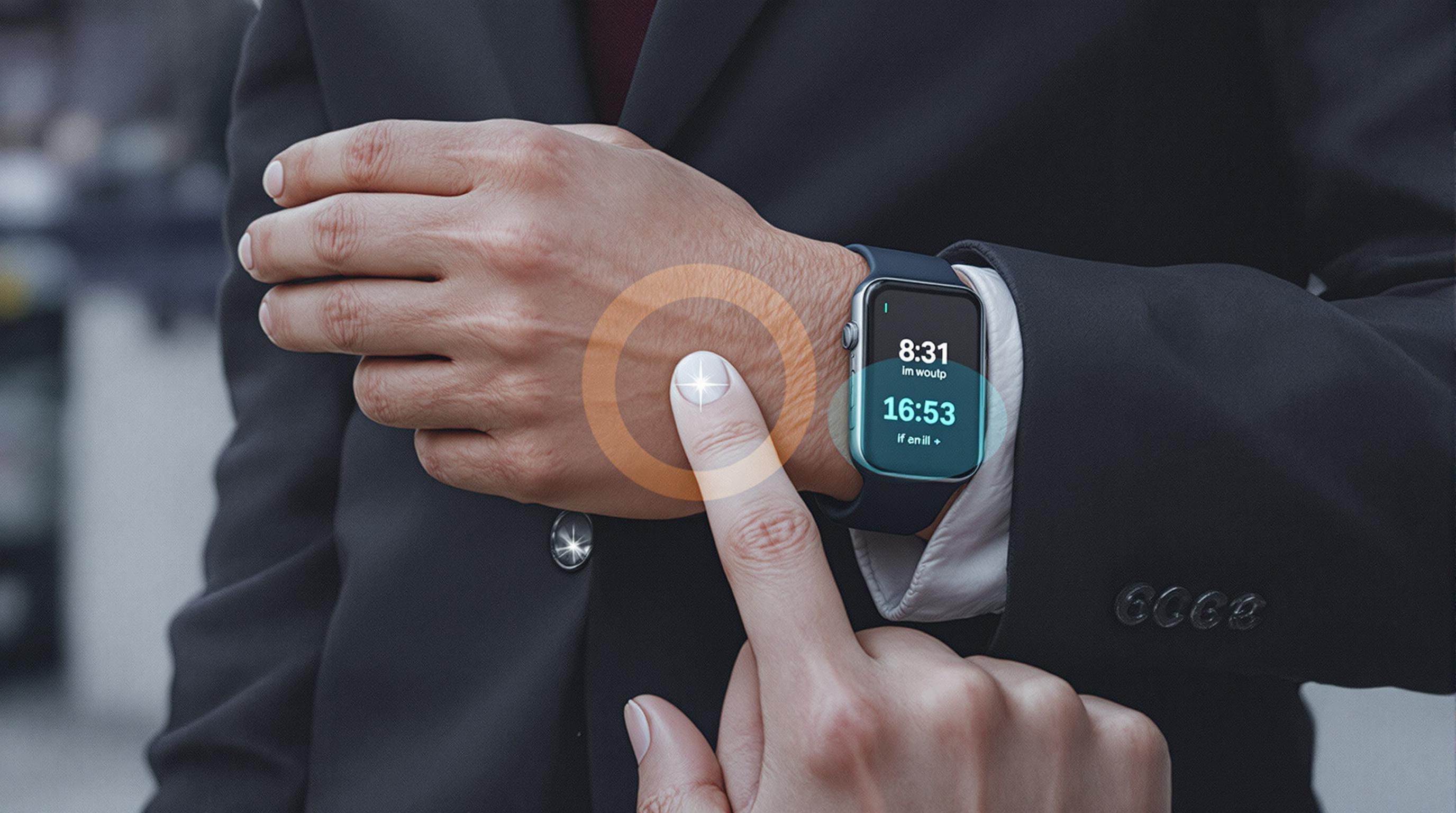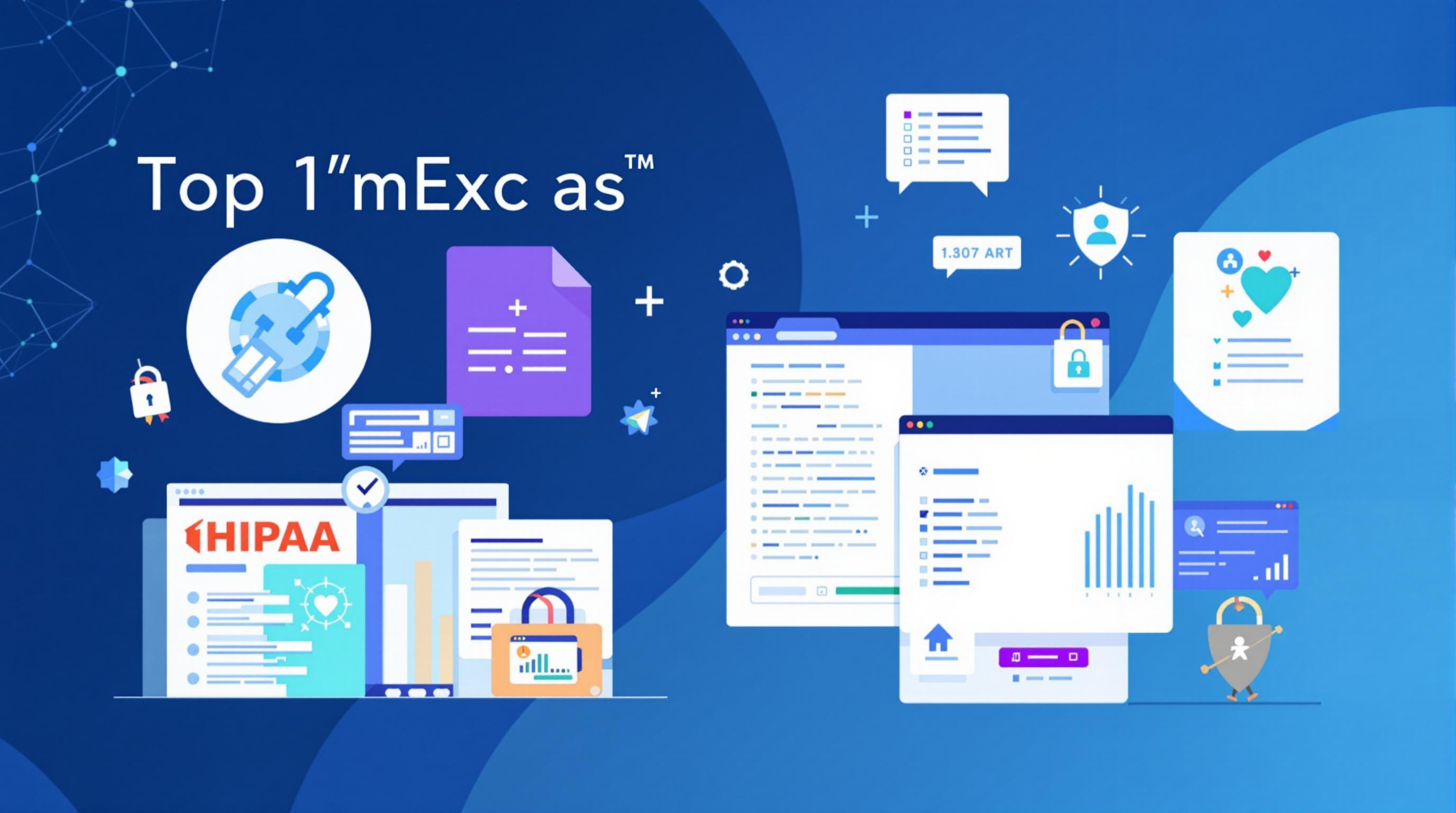Related Articles
- The Unexpected Impact of Environmental Factors on the Accuracy of Medication Dispensing Technologies
- Exploring the Influence of Mental Health Stigma on Accessibility and Affordability of Coverage in Modern Insurance Plans
- How Cloud Storage Quirks Are Quietly Complicating Patient Data Protection in Modern Healthcare Settings
- Top 6 Emerging Medical Billing Platforms Revolutionizing Practice Revenue Cycles Since 2019
- When Digital Distance Deepens Divide: Surprising Social Costs of Remote Health Services in Underserved Communities
- The Unexpected Role of EHR Usability in Physician Burnout and Strategies to Reclaim Workflow Balance
Top 7 Innovative Healthcare Data Protection Solutions Launched Since 2019: A Comprehensive Review and Ranking
Top 7 Innovative Healthcare Data Protection Solutions Launched Since 2019: A Comprehensive Review and Ranking
Top 7 Innovative Healthcare Data Protection Solutions Launched Since 2019: A Comprehensive Review and Ranking
In an age where patient data privacy is paramount, the healthcare industry has witnessed a surge in innovative data protection solutions. These technologies not only safeguard sensitive information but also ensure compliance with evolving regulations like HIPAA and GDPR. Since 2019, several cutting-edge platforms and tools have emerged, redefining how healthcare providers secure electronic health records (EHRs) and sensitive medical information.
This comprehensive review explores the top seven healthcare data protection solutions launched since 2019. Each section will delve into the distinctive features, implementation impact, and user reception, providing healthcare professionals and IT experts with insights to make informed decisions. Sources include industry reports from HIMSS, Journal of Medical Internet Research, and official vendor literature.
Let us embark on this journey through the latest advancements that merge technology with the sacred duty of protecting patient dignity and confidentiality.
1. Protenus AI Healthcare Compliance Platform
Protenus introduced an AI-driven platform in 2019 that monitors healthcare data in real-time to identify suspicious activity and potential breaches. Utilizing machine learning algorithms, it analyzes user behavior within EHR systems, detecting anomalies that could indicate unauthorized access or policy violations.
This proactive surveillance aids compliance officers and security teams in quickly pinpointing risks, thereby reducing the window for data leakage or compromise. The platform integrates seamlessly with existing healthcare IT infrastructures, offering dashboards that are both insightful and actionable.
According to a 2021 HIMSS report, healthcare organizations using Protenus have seen a 40% reduction in privacy violations. This demonstrates its effectiveness in weaving vigilance into the fabric of healthcare data governance.
2. Virtru Email Protection for Healthcare
Launched in 2019, Virtru offers end-to-end encryption tailored specifically for healthcare communication channels, particularly email. Its user-friendly interface ensures that clinicians and administrators can secure patient information effortlessly, without cumbersome workflows.
By embedding granular permission controls, Virtru allows data owners to decide who can access, forward, or download sensitive emails. This fine control is crucial in healthcare where context-driven access can change rapidly depending on patient needs and regulatory requirements.
Independent studies highlight Virtru’s compliance with HIPAA standards and report that organizations adopting it have enhanced their secure communication capabilities by over 50% (Source: Journal of Medical Internet Research, 2020).
3. Microsoft Azure Confidential Ledger
Introduced in public preview in 2021, Microsoft Azure Confidential Ledger is a blockchain-based service designed for immutable and verifiable record keeping in healthcare. Its innovation lies in providing a tamper-proof ledger that can securely store audit trails, consent records, and transaction histories.
This ledger utilizes trusted execution environments (TEEs) to protect data integrity and confidentiality, ensuring that even administrators cannot alter records unlawfully. This transparency bolsters trust among patients and providers alike.
Early adopters report increased audit efficiency and improved regulatory compliance documentation, making Azure Confidential Ledger a new cornerstone for healthcare data accountability (Microsoft Official Documentation, 2021).
4. Cylera Medical Device Security Platform
Since its market launch in 2019, Cylera focuses on securing connected medical devices, which represent increasingly vulnerable endpoints in healthcare networks. The platform provides continuous monitoring, risk assessment, and anomaly detection tailored to the healthcare environment.
By understanding device behavior and communication patterns, Cylera helps prevent breaches that could arise from compromised medical equipment. This is critical as IoT devices grow in importance for patient care and monitoring.
Healthcare providers adopting Cylera report a marked reduction in device-related security incidents, promoting safer clinical environments (Healthcare Information and Management Systems Society, 2021).
5. MedCrypt IoT Security Platform
MedCrypt, founded before 2019 but significantly upgraded its IoT-focused security platform beginning in 2020, aims to protect medical devices through embedded encryption, authentication, and anomaly detection. This layered approach minimizes attack surfaces and ensures device integrity.
The platform’s cryptographic solutions comply with FDA guidelines on medical device cybersecurity, integrating seamlessly without disrupting device operation or user experience.
Case studies show MedCrypt’s efficacy in reducing zero-day vulnerabilities and maintaining continuous compliance, making it a trusted partner for manufacturers and healthcare institutions alike (FDA Cybersecurity Framework, 2020).
6. Immuta Data Access Control Platform
Launched into a growth phase post-2019, Immuta provides dynamic data access control, especially for healthcare organizations managing large datasets for research and analytics. Its policy-driven engine automates compliance with privacy laws while enabling secure data sharing.
The solution supports de-identification, purpose-based access, and consent management, thereby facilitating responsible data use without sacrificing patient privacy.
According to Gartner’s 2022 report, Immuta is a leader in data governance within healthcare data ecosystems, helping accelerate collaborative research while ensuring protection.
7. TigerGraph Health Data App
Since its introduction in 2019, TigerGraph’s Health Data App leverages graph database technology to analyze relationships in healthcare datasets securely. This helps identify risk factors and anomalies associated with data breaches or patient data misuse.
Its architecture supports detailed access policies and audit trails that protect sensitive information during advanced analytics processes. Importantly, it empowers healthcare entities to gain insights without exposing data unnecessarily.
Industry analyses commend TigerGraph for enhancing both security and analytical value in healthcare IT environments (Forbes Healthcare Innovation, 2021).
Ranking Summary and Insights
After evaluating each solution’s innovation, reliability, and impact, the ranking reflects a balance between cutting-edge technology and practical application in healthcare settings:
1. Protenus AI Healthcare Compliance Platform
2. Virtru Email Protection
3. Microsoft Azure Confidential Ledger
4. Cylera Medical Device Security Platform
5. MedCrypt IoT Security Platform
6. Immuta Data Access Control Platform
7. TigerGraph Health Data App
This ranking emphasizes solutions combining AI, encryption, blockchain, and device security, promoting a comprehensive defense-in-depth strategy for healthcare data protection.
Concluding Reflections
Healthcare data protection is not merely a regulatory requirement but a sacred trust between caregivers and those they serve. The innovative solutions we have reviewed mark a hopeful path, where technology becomes a guardian of patients’ intimate stories and truths.
As we adopt these tools, may we do so with mindfulness—respecting privacy, nurturing transparency, and fostering an environment where healing transcends mere clinical interaction, embracing the full wholeness of human dignity.
Ultimately, these innovations remind us that protection is also a profound form of care—a commitment to honor the light within every life we touch.




